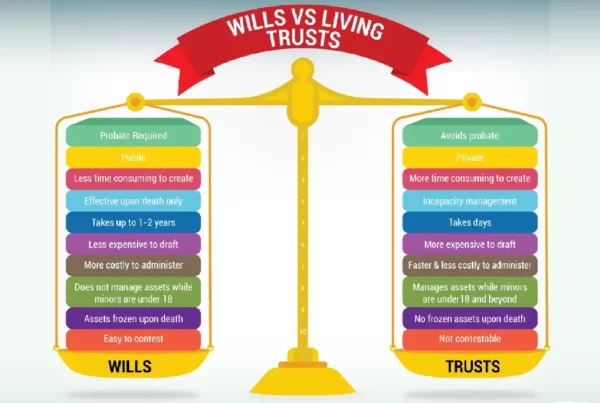In an era where convenience is king, the allure of completing tasks from the comfort of our homes is undeniable. The digital revolution has transformed numerous sectors, including estate planning, introducing the concept of online wills and trusts. While these services offer an array of benefits, it’s imperative to navigate them with caution. This blog article delves into the intricacies of online legal services for estate planning, outlining their benefits and drawbacks, instances where they may not be the optimal choice, and the significance of selecting the right platform.
The Benefits of Online Estate Planning:
Accessibility and Convenience
The most apparent advantage of online wills and trusts is their accessibility. These services enable individuals to draft essential documents without leaving their homes, providing a convenient option for those with hectic schedules or limited mobility.
Cost-Effectiveness
Generally, online services are more affordable than hiring a traditional estate attorney. This price difference can make estate planning more accessible to a broader audience, ensuring that more people take the crucial step of organizing their estate.
Ease of Use
Online platforms typically guide users through the process of creating wills and trusts using straightforward, jargon-free language. This approach simplifies legal terminology and makes estate planning more approachable for the average person.
The Drawbacks of Going Digital:
Lack of Personalization
Online services often use standardized templates, which might not suit everyone’s unique needs. Complex family dynamics, significant assets, or the desire to establish detailed conditions for asset distribution may require the customization that only a personal consultation can offer.
Legal Nuances
Estate laws vary significantly across jurisdictions, and keeping up with these nuances can be challenging for online platforms. There’s a risk that a document generated online might not comply fully with state-specific regulations, potentially leading to disputes or complications during probate.
No Legal Advice
While online services provide guidance on drafting documents, they cannot offer personalized legal advice. Users with specific legal questions or unique situations will not receive the tailored advice that an estate planning attorney could provide.
When Online Isn’t the Right Option?
Online wills and trusts are not suitable for everyone. If your estate involves complicated family circumstances, business interests, or substantial assets, the limitations of online platforms may not adequately address your needs. Furthermore, if you require guidance on reducing estate taxes or setting up trusts for minors or beneficiaries with special needs, the personalized advice of an estate planning attorney is invaluable.
Shelly Smith with Elysium Legal offers insight into a common issue, stating, “Most often people do not understand what the provisions of the trust actually mean. Especially when trusts are created online, many people don’t understand the need to fund their trusts after the documentation has been completed.” The impact of this misunderstanding is profound, as she explains, “We get people coming into our office that are now having to deal with the passing of a loved one and the trust that had been created has nothing in it. These are the simple things that talking with someone would resolve in a matter of minutes.”
Choosing the Right Online Estate Planning Service
Despite these considerations, for many, online wills and trusts can be an effective solution. The key lies in selecting the right service. Look for platforms that:
- Offer updated documents that comply with your state’s laws.
- Provide clear, concise explanations of legal terms and their implications.
- Have positive reviews and testimonials from users.
- Offer some level of personalized support, whether through FAQ sections, customer service, or access to consultations with legal professionals.
Conclusion
Online wills and trusts represent a significant advancement in making estate planning more accessible and affordable. However, they are not a one-size-fits-all solution. By understanding the benefits and drawbacks, you can make an informed decision about whether they suit your needs. If you choose to go the digital route, selecting the right platform is crucial to ensure that your estate is planned effectively and according to your wishes.
For those with more complex estates or specific legal queries, seeking professional advice is recommended. Remember, the goal of estate planning is to ensure that your assets are distributed according to your wishes, with minimal complications for your loved ones. Whether online or in-person, taking the step to plan your estate is a commendable and essential part of financial management.
Learning more about how Elysium Legal is revolutionizing the online estate planning model and making sure that you are able to avoid the common pitfalls that other online services face.






